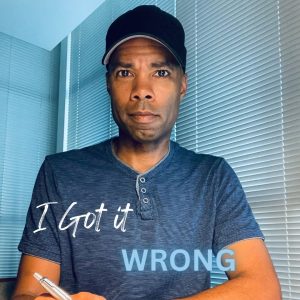
As an avid reader, I’m always looking to explore new ideas and concepts that challenge the way I think about, and see, the world. I’m curious about productivity, and studying the habits that successful people employ across all disciplines. Over the years, there have been moments when something I’ve read reveals that maybe I’m on the right track, or maybe I’m a little off the beaten path (not necessarily a bad thing). And recently, I experienced the most painful ‘aha’ moment of my life when I understood this: I got it wrong.
The Lies We Tell Ourselves
I was only a few pages into Greg McKeown’s book, Essentialism: The Disciplined Pursuit of Less, when I realized I’d been lying to myself. In my search to focus deeply, or any time I stepped away from social media, I believed that it was my way to focus on what matters most. As it turned out, my ulterior motive was to find a way to somehow still do it all.

But whether I stepped back from social media, or reduced my screen time, or cancelled my subscription to Prime Video, I never truly focused on what mattered. Instead, I simply found ways to fill up that ‘free time’ with new things. All of a sudden, I was trying to write three novels instead of finishing one. Was it any wonder I was frustrated by my lack of progress? Over and over again I got it wrong, but I could not—would not—see it.
Getting Back to Basics
Stepping back into a nine-to-five (ish) work environment prompted me to think hard about my time and how I spend it. I didn’t want to admit that I’d been repeatedly spreading myself too thin. For months I’d been bouncing between writing projects—mixing up character names between stories, forgetting key plot moments, unsure of where I left off—and making incremental progress. I’d been waking up between 2:30 and 3:00 am to journal, train, and write without being able to hold my focus. In the evening, I was too tired (although I tried and fail) to write again, but often had something playing or streaming in the background. I shouldn’t have been surprised (but I was) that I was mentally and physically spent.
Stop Trying to Do it All
I am working on taking time, without distractions, to think about what it is that I want to do and how to do it. The bottom line is that I need to stop trying to do it all—and mean it. So, I’ve shelved two of the writing projects I’ve been working on. Now, I’m going all in on the one that, to me, means the most. It feels ‘odd’ to leave the others unfinished, but I’ll get back to them when the time is right.
I’m doing what I can to step back, not away, from social media (Instagram in particular). Once I deduct my work and commute hours from the day, I know how much time is left for me and the vital few things that matter. That is where I need to spend my time. I cannot worry about what I may or may not be missing out on (or worry/care about what others are doing).
I Got it Wrong
Acknowledging, without letting the shame overwhelm, that I got it wrong has been powerful. I can see more objectively my life as it is and not how I told myself that it was. I’m not aiming for perfection, or anything near that. My goal is just to find a way to give the best of myself every day. And to become someone who consistently and “deliberately distinguishes the vital few from the trivial many, eliminates the nonessentails, and then removes obstacles so the essential things have clear, smooth passage.”1
Yes, I got it wrong, but now at least I’m working on a course correction.
- McKeown, G. (2014, 2020). Essentialism: The Disciplined Pursuit of Less, Random House, p. 7. [↩]
Leave a Reply